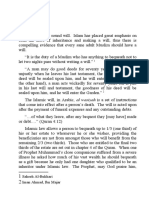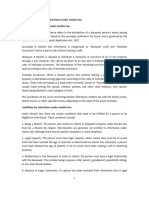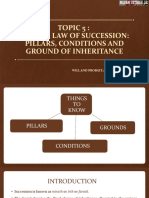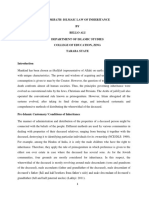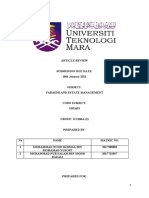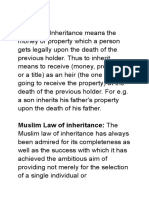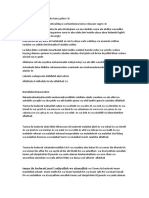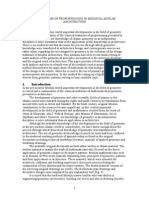0% found this document useful (0 votes)
29 views4 pagesInheritance
Islamic inheritance law, governed by divine injunctions from the Qur'an and Sunnah, ensures the just distribution of a deceased person's estate among rightful heirs, emphasizing equity over equality. The laws are meticulously structured, with predefined shares based on gender and relationship, and prioritize the payment of debts and funeral expenses before distribution. Adherence to these laws is considered a religious obligation, and deviations are viewed as significant transgressions.
Uploaded by
muhammademaan700Copyright
© © All Rights Reserved
We take content rights seriously. If you suspect this is your content, claim it here.
Available Formats
Download as PDF, TXT or read online on Scribd
0% found this document useful (0 votes)
29 views4 pagesInheritance
Islamic inheritance law, governed by divine injunctions from the Qur'an and Sunnah, ensures the just distribution of a deceased person's estate among rightful heirs, emphasizing equity over equality. The laws are meticulously structured, with predefined shares based on gender and relationship, and prioritize the payment of debts and funeral expenses before distribution. Adherence to these laws is considered a religious obligation, and deviations are viewed as significant transgressions.
Uploaded by
muhammademaan700Copyright
© © All Rights Reserved
We take content rights seriously. If you suspect this is your content, claim it here.
Available Formats
Download as PDF, TXT or read online on Scribd
/ 4



